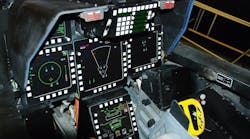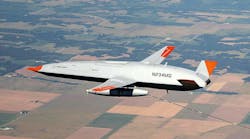PARIS, France, 27 April 2012. The first two Galileo In-Orbit Validation (IOV) satellites built by Astrium have begun full in-orbit operations. The satellites passed a series of in-orbit tests following their launch on the first Soyuz flight from the Guiana Space Centre, French Guiana on 21 October 2011.
The satellites are the first two of four IOV satellites developed by Astrium for the Galileo system - Europe’s global navigation satellite system that will provide a global positioning service under civilian control. The first two spacecraft will be joined in orbit later this year by the third and fourth IOV satellites, which are also being manufactured under Astrium’s leadership. Once in orbit, these four satellites will validate the Galileo system - four satellites are the minimum required to provide positioning information in three dimensions.
A team under the leadership of Astrium in Germany designed and manufactured the satellites, with Astrium in the UK developing and integrating the satellites’ navigation payloads.
The Galileo system will offer services to users in various domains, including commercial, safety and security, science and leisure, including services for safety-critical applications such as civil aviation, emergency services and security. Consisting of 30 spacecraft in Medium Earth Orbit and associated ground infrastructure, the system will be gradually built up over time.
In addition to leading the development of the Galileo IOV satellites, Astrium is involved in the Galileo Ground Segment and System activities. Astrium recently signed a $97.1 million contract from ESA on behalf of the EU to be the prime contractor for the Galileo Full Operational Capability Ground Control Segment. The Ground Control Segment (GCS) contract covers the provision of the facilities for the operation of the Galileo constellation and is led by an Astrium team out of the UK.
The definition phase and the development and In-Orbit Validation phase of the Galileo programme were carried out by the European Space Agency (ESA) and co-funded by ESA and the European Commission.
The Full Operational Capability phase of the Galileo programme is managed and funded by the European Commission. The Commission and ESA have signed a delegation agreement by which ESA acts as design and procurement agent on behalf of the Commission.


